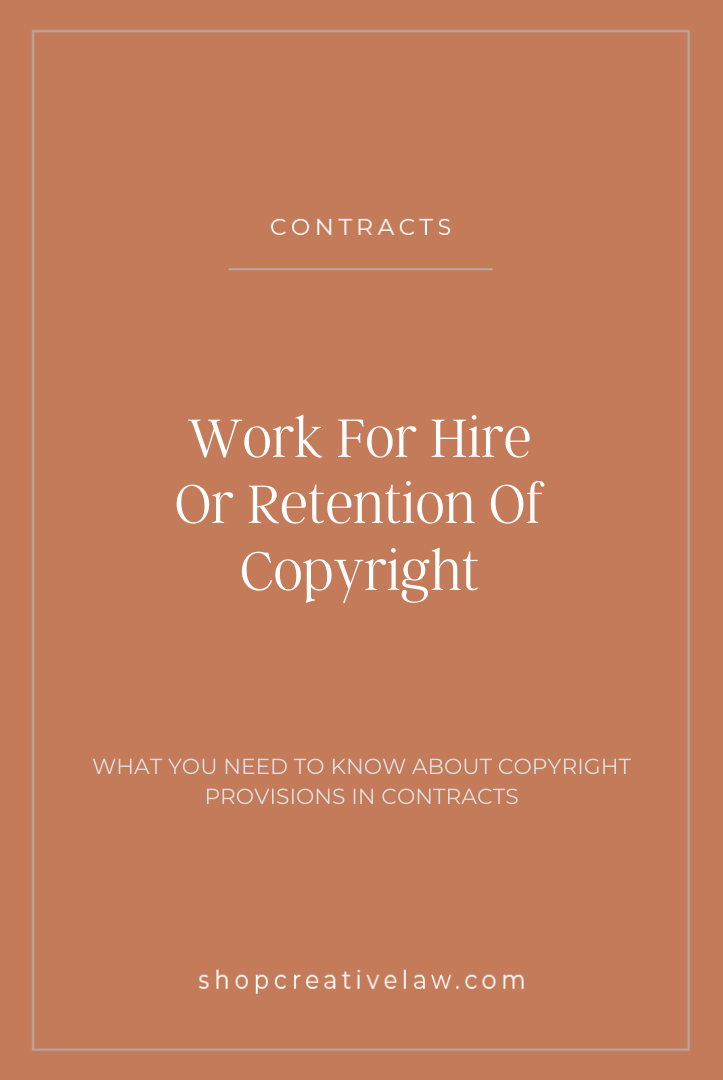Work For Hire Or Retention Of Copyright: What You Need To Know About Copyright Provisions In Contracts
How a work made for hire agreement can protect you and your contractors.
Copyright rights in contracts fall into one of two categories. The creator of any work (copyright) automatically retains common law copyright rights upon creation. Therefore, if you want to specify the ownership of either your work (or your client’s work) as your own, you must specify whether you are creating as a work made for hire, or as retaining copyright ownership.
Black’s Law Dictionary defines the two as such:
Copyrights: an original expression, in fixed or tangible form that may be entitled to common law or statutory protection. A work may take different forms, including art, sculpture, literature, music, photography, etc.
Work Made For Hire: a copyrightable work produced either by an employee within the scope of employment or by an independent contractor under a written agreement, especially a work specially ordered or commissioned for use as (1) a contribution to a collective work, (2) a translation, (3) a supplementary work, (4) a part of a movie or audiovisual work, (5) a compilation…. If the work is produced by an independent contractor, the parties must agree expressly in writing that the work will be a work for hire. The employee or commissioning party owns the copyright. 17 USCA sec. 101.
Work for hire only applies in two situations, but it always benefits both parties.
An employee creates work for his employer.
A commissioned work is completed by an independent contractor.
Why you should care:
Hiring contractors to create a work for your business can be intimidating because the question of who owns the work you commission is ultimately decided solely in your contract.
Independent contractors automatically retain copyrights for their created work, which means they can resell what you have commissioned specifically for your business. And when you’re trying to build a successful business, copycat works—which are completely legal, in this instance—will not help your business stand apart in your industry. Instances like this are prime examples of when clear work-for-hire provisions are crucial to your agreement.
By clearly assigning all copyright and intellectual property rights from the creator to the person hiring, both parties benefit by understanding the agreement before any work is started, and by avoiding future legal disputes.





